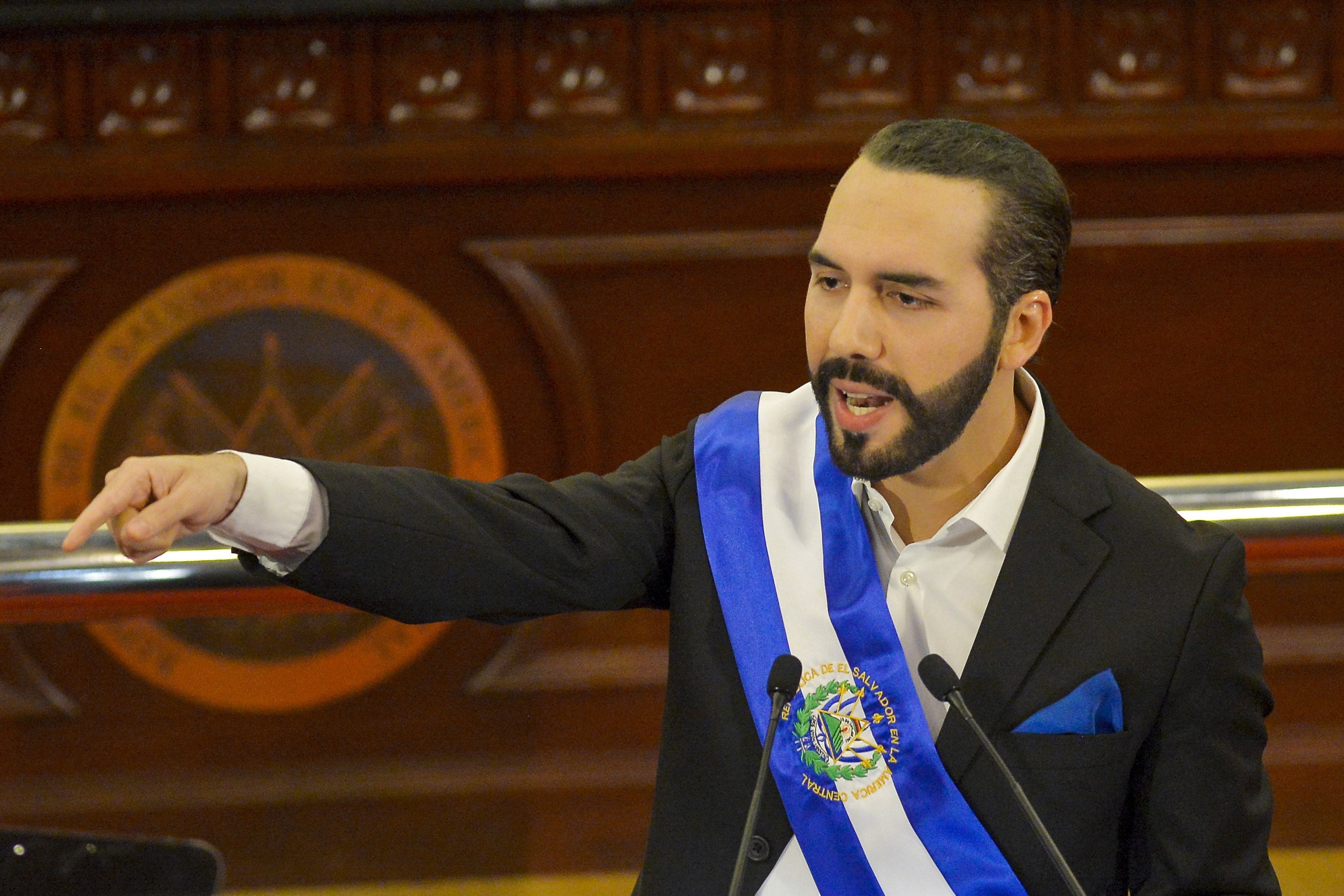El Salvador: Legislature Deepens Democratic Backsliding

(Washington DC) – El Salvador’s legislature has taken drastic steps to undermine judicial independence and limit accountability since President Nayib Bukele’s supporters in the Legislative Assembly took office on May 1, 2021, Human Rights Watch said today.
The Assembly has also shelved bills that would have advanced fundamental rights. President Bukele’s supporters in the Assembly have a two-thirds majority, which they have used to pursue an agenda backed by Bukele that has nearly eliminated checks on his power.
They have packed the Supreme Court, replaced the attorney general, and passed laws dismissing hundreds of lower-level judges and prosecutors.
They have also shelved bills that would have partly decriminalized abortion and established legal gender recognition for transgender people.
The Assembly is set to discuss a government-sponsored overhaul of the constitution. “In six months, the pro-government legislature has swiftly undermined the country’s independent institutions, allowing President Bukele to concentrate political power in his hands,” said José Miguel Vivanco, Americas director at Human Rights Watch. “There’s every reason to fear that the legislature will now use the upcoming constitutional reform to consolidate Bukele’s power grab.” On May 1, the 84-seat Assembly became dominated by President Bukele’s party, Nuevas Ideas (New Ideas), which now has 56 lawmakers.
The Assembly took immediate steps to undermine the rule of law and rejected bills that would advance the protection of basic rights. For instance: On September 3, the Constitutional Chamber of the Supreme Court, which now has a majority of members named by the pro-Bukele legislature, ruled that the constitution allowed for immediate presidential re-election. El Salvador’s Constitution forbids “any individual who served for at least six months in the previous presidential term” from running for president, and had been consistently interpreted to forbid immediate re-election. In June, Rodolfo Delgado, the attorney general named on May 1, ended a cooperation agreement with the International Commission Against Impunity in El Salvador (CICIES), a body backed by the Organization of American States to fight corruption in the country.
The commission had supported investigations into alleged corruption by high-level officials in the Bukele administration, including in connection with Covid-19 purchases. Delgado also reportedly dismantled a prosecutor’s unit that was investigating alleged negotiations between the government and several gangs. El Faro, an investigative news outlet, reported in September 2020 that government officials have offered jail privileges to imprisoned gang members and to increase employment opportunities for members outside of prison in exchange for the gang’s commitment to lower homicide rates. In September, Vice President Félix Ulloa made public a draft proposal to revise the constitution, proposing more than 200 changes.
These include extending the presidential term from five to six years, and overhauling some institutions such as the Supreme Court’s Constitutional Chamber, the Supreme Electoral Tribunal (a body that oversees elections), and the Court of Accounts (which audits public funds).
The proposal would replace these bodies with new ones, change the way their authorities are appointed, and oust the current authorities as soon as the new bodies are established.
These changes could be used to increase the government's control over these institutions.
The proposed draft does little to address chronic human rights problems in El Salvador, including abusive practices in pre-trial detention, widespread violence and impunity, discrimination on the basis of sexual orientation and gender identity, and poor support for women’s rights. President Bukele is set to introduce the overhaul, which may include changes of his own, in the Assembly. He has already announced changes to eliminate language in Ulloa’s draft that could have opened the door for recognizing same-sex marriage and easing the country’s abortion ban. Under El Salvador’s law, the constitutional reform needs to be approved by the current Assembly and ratified by the next one, which will be elected in 2024.
Read the full article at the original website
References:
- https://www.hrw.org/americas/el-salvador
- https://www.hrw.org/about/people/jose-miguel-vivanco
- https://elpais.com/internacional/2021-05-19/el-parlamento-de-el-salvador-archiva-una-propuesta-para-despenalizar-el-aborto.html
- https://www.asamblea.gob.sv/sites/default/files/documents/correspondencia/C28A646B-453C-48EB-A98F-55E1F6E47C6B.pdf
- https://tbinternet.ohchr.org/Treaties/CCPR/Shared%20Documents/SLV/INT_CCPR_ICS_SLV_19856_E.pdf
- https://www.diariooficial.gob.sv/diarios/do-2021/05-mayo/05-05-2021.pdf
- https://www.efe.com/efe/america/politica/comision-de-la-oea-denuncio-irregularidades-en-fondos-pandemia-el-salvador/20000035-4391939
- https://www.asamblea.gob.sv/node/11687
- https://www.asamblea.gob.sv/node/11238
- https://www.elsalvador.com/noticias/nacional/ongs-asamblea-legislativa-denuncia-sin-dar-detalles-corrupcion-de-el-salvador/843228/2021/
- https://elfaro.net/es/202106/el_salvador/25581/Nuevas-Ideas-nombra-a-su-Corte-Suprema-para-nueve-a%C3%B1os.htm
- https://www.hrw.org/news/2021/09/02/el-salvador-new-laws-threaten-judicial-independence
- https://apnews.com/article/coronavirus-pandemic-technology-business-nayib-bukele-el-salvador-0d1af0e9ec07e9af5ff3d11601f5e987?emci=be492897-9435-ec11-9820-c896653b26c8&emdi=03b0acb5-9535-ec11-9820-c896653b26c8&ceid=4606001
- https://tbinternet.ohchr.org/_layouts/15/treatybodyexternal/Download.aspx?symbolno=CCPR%2fC%2fGC%2f37&Lang=en
- https://www.jurisprudencia.gob.sv/portal/apls/2021/09/1-2021PerdidaDerechosCiudadania.pdf
- https://www.oas.org/dil/esp/constitucion_de_la_republica_del_salvador_1983.pdf
- https://www.oas.org/en/media_center/press_release.asp?sCodigo=E-059/21
- https://elfaro.net/es/202108/el_salvador/25668/Gobierno-de-Bukele-negoci%C3%B3-con-las-tres-pandillas-e-intent%C3%B3-esconder-la-evidencia.htm?fbclid=IwAR1-AjIqR6DJsyIUxeDLacnl2UBVfadrN1x5hQD_X7wCvozIL6sD7Zyy2p8
- https://elfaro.net/es/202009/el_salvador/24781/Gobierno-de-Bukele-lleva-un-a%C3%B1o-negociando-con-la-MS-13-reducci%C3%B3n-de-homicidios-y-apoyo-electoral.htm
- https://www.presidencia.gob.sv/proyecto-de-reforma-constitucional/
